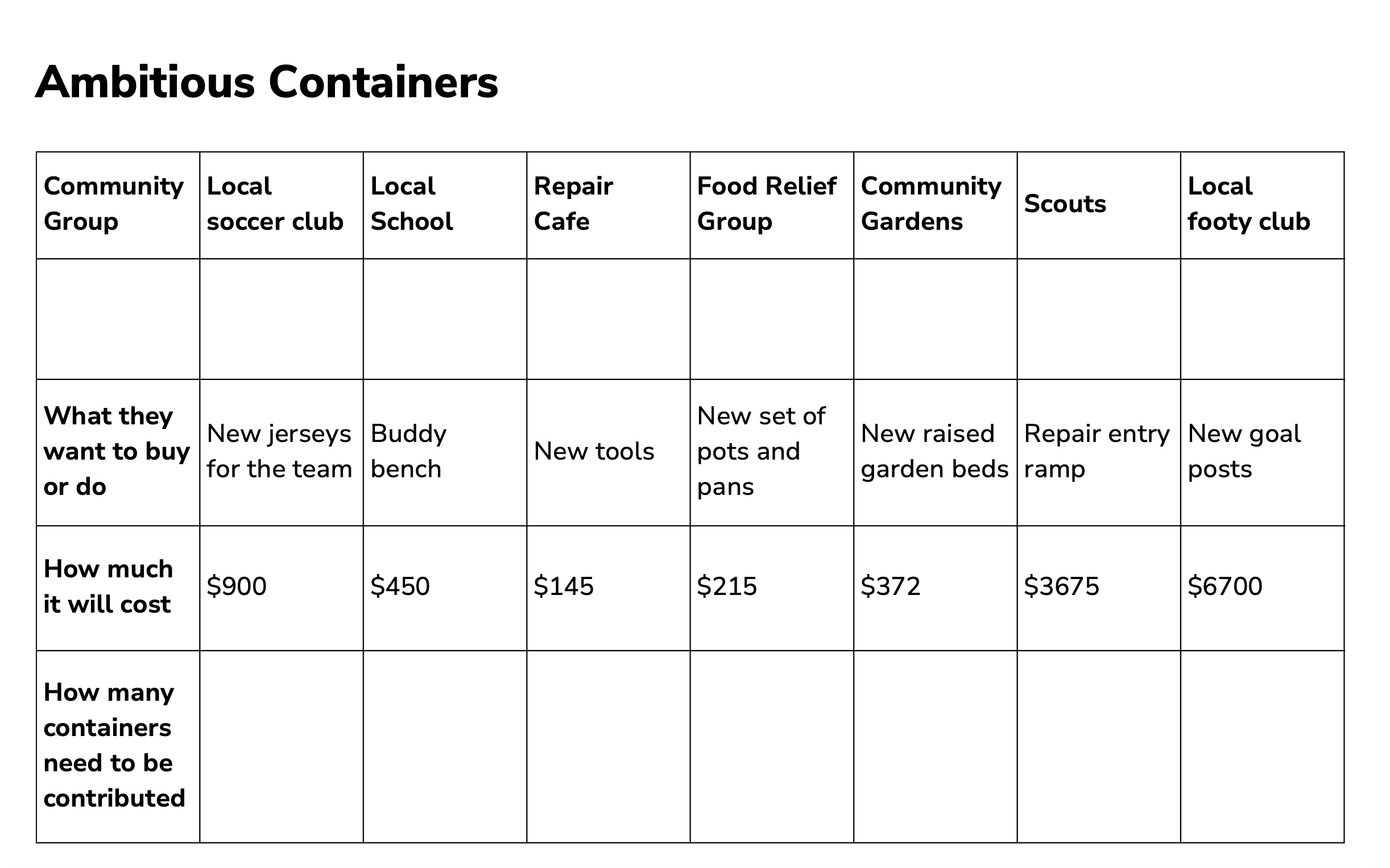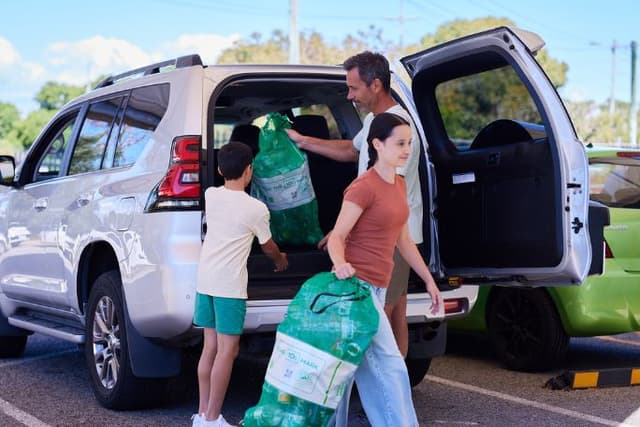
Containers for Change WA - We Can Get By with a Little Help from a Can
Lesson4 of 5 in this unit
PrimaryYear 5Humanities and Social SciencesBusiness and EconomicsEnvironmentalRecyclingSustainabilitySocialSocial Action
Summary
Lesson Guides and Printables
Lesson Plan
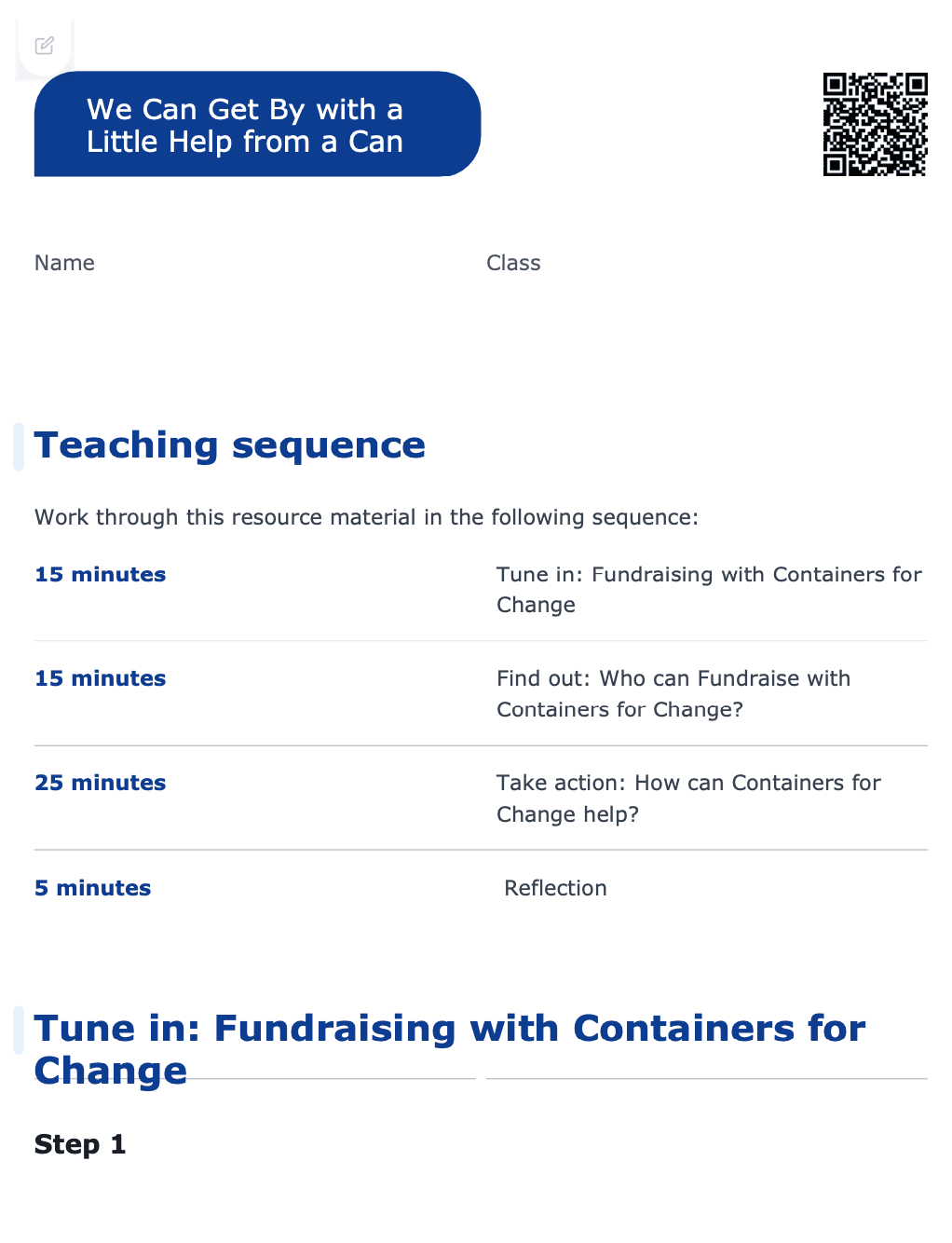
Fundraising with Containers Worksheet
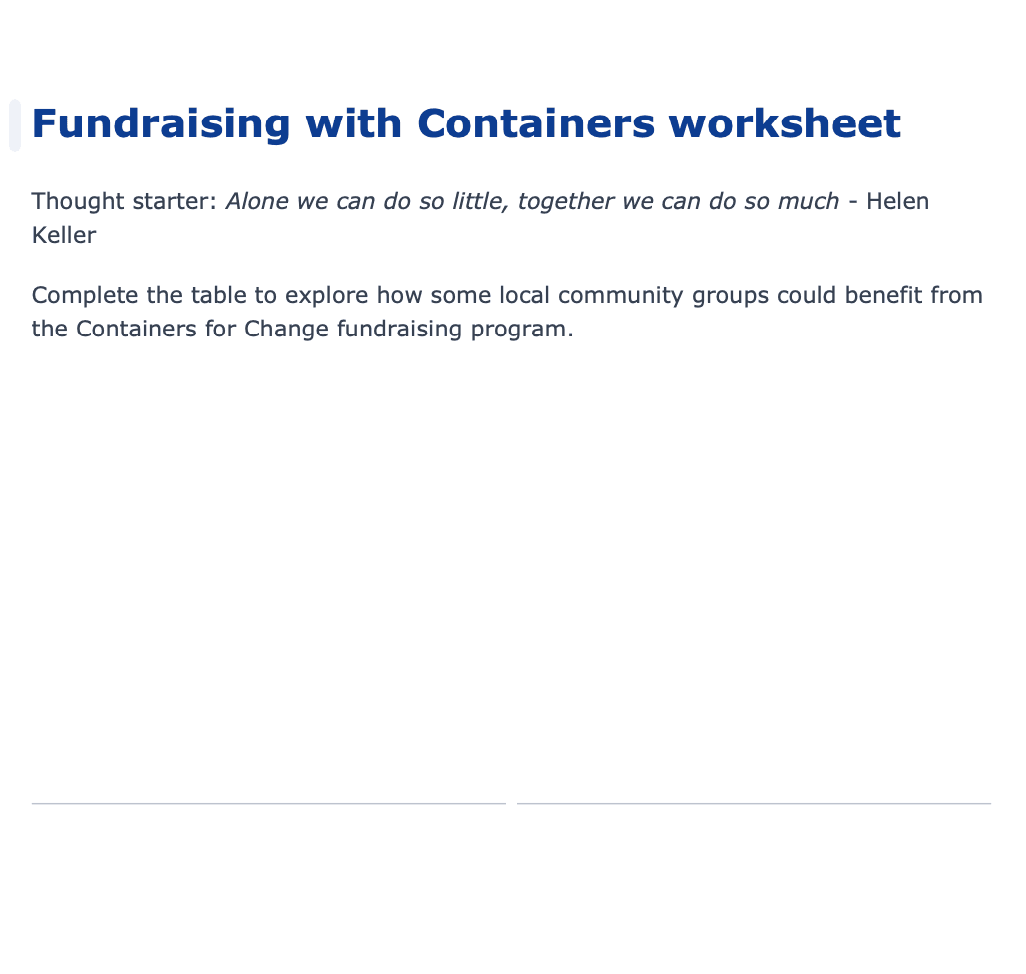
Teacher Content Info
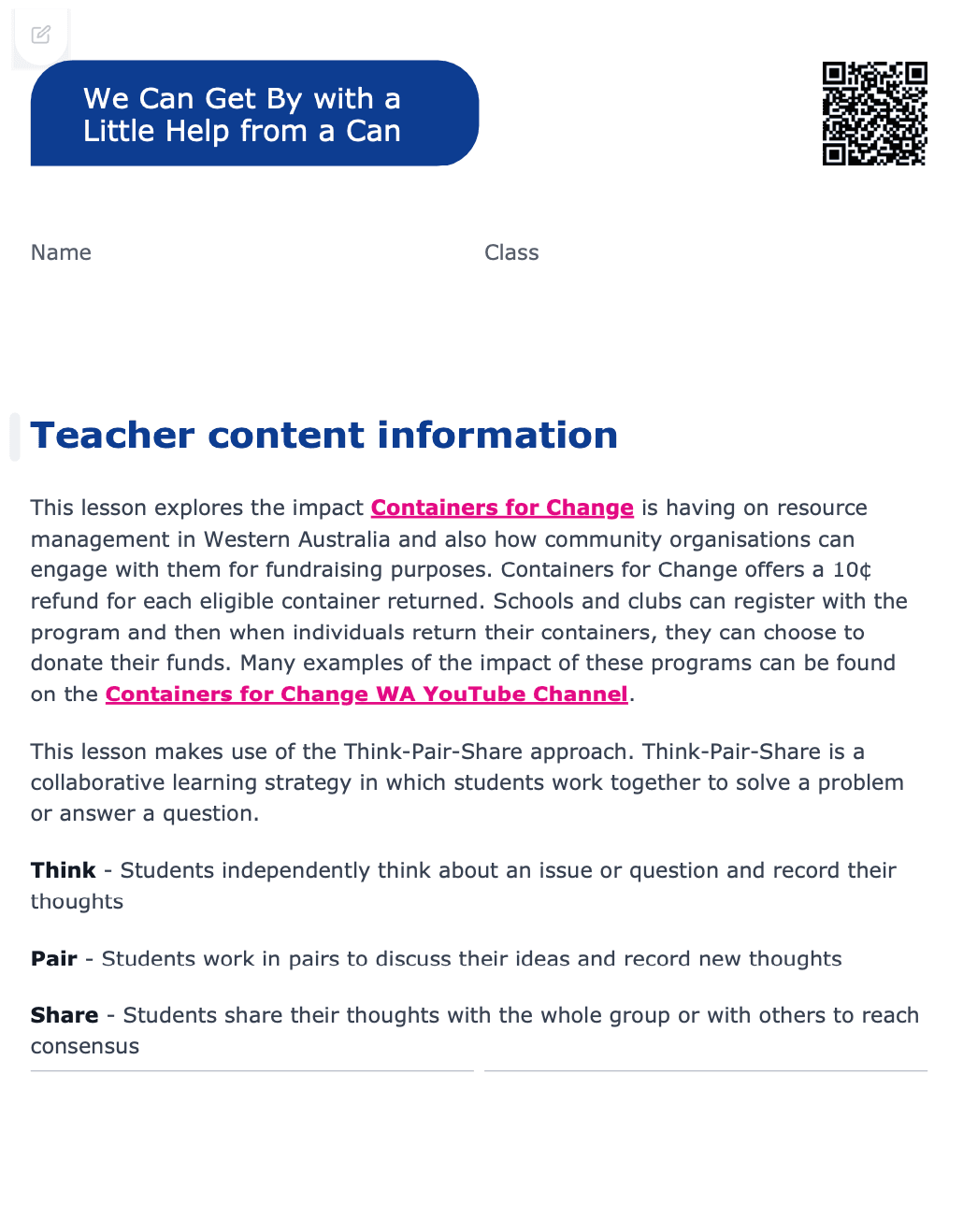
Ambitious Containers
